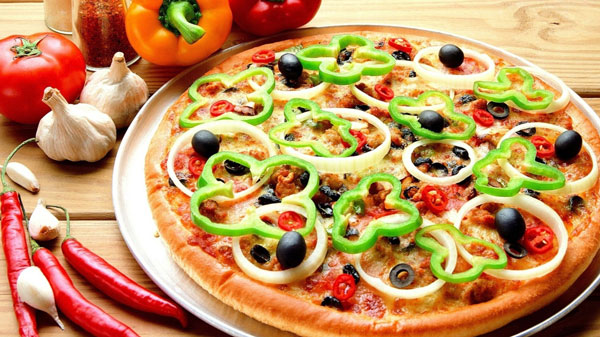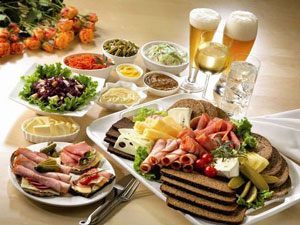Food Guidelines
You probebly know that a healthy diet must have a proper balance of the essential nutrients, vitamins and minerals. When nutritionists talk about healthy diet, they talk about eating whole some foods that are unprocessed and don't have any artificial coloring, herbecides, pesticides, chemicals and flavors.

Here are some tips on food guidelines:
Increase Raw Food in your Diet: Organically or home grown fruits and vegetables are free of pesticides, herbicides and chemical fertilizers and are high in nutrients, minerals, vitamin and fiber. Raw foods have live enzymes and nutrinets and can be very beneficial for your health.

Keep in mind that rinsing and washing your vegetables and fruits are very important. Use a brush to wash your fruits or veggies and soak them in water for 10 minutes. You can use frozen foods if fresh ones are not available, but do not purchase food in cans. Raw foods are high in dietary fiber and great for weight loss.
Avoid Processed Food Products high in Artificial Ingredient or Additives: Additives are usually added to food products to lengthen their life spam and enhance the color, texture or the taste of these food. Studies show that an average American consumes 135 pounds of artificial ingredient and assitives such as sugar and salt. Artificial ingredient and additives have little or no nutritional value at their best. The artificial sweeteners used in coffee shops have artificial additives. Consuming these artificial ingredients and additives in processed foods can cause a wide range of health problems such as headaches, margins, diarrhea, cancer, seizures, heart attack, high cholesterol and high blood pressure. Canned foods contain high level of aluminum and can cause memory loss and Alzheimer’s.

Choose the Right Cookware: Although raw foods have more benefits than cooked food, some cooked foods like soups are full of nutrients. Keep in mind that it's important to use the right cookware such as stainless steel, glass, copper or iron pans and pots. Using teflon can contaminate food with aluminum and chemical C8 and can harm the nervous system and cause memory problems such as Alzheimer’s.
Do not Over Cook your Food: Overcooking your food can destroy many valuable nutrients, enzymes and vitamins. Deeply fried foods are toxic to your health, especially foods fried with hydrogenated vegetable oils. These oils are cancerous and linked to many serious health issues. Also barbequed meat ( exposed to high temperatures) contains aromatic amines that are cancerous. Burned bread crust and foods that are cooked with high temperatures or deeply fried are also very harmful for your body. Eating foods that are raw or slightly heated can significantly lower the risk of health issues such as diabetes, cancer or heart problems.
Reduce the amount of Salt: Our body needs 500 mg sodium a day. Having 500 mg sodium a day helps with healthy muscle function, proper PH level in blood and normal fluid levels. Excessive amount of sodium can cause high blood pressure, heart problems and failure, PMS (Premenstrual Syndrome) and kidney problems.
You have to reduce the amount of your salt intake by adding herbs and spices to your dishes instead of satl. Keep in mind that processed foods and fast foods are high in salt and salt is usually used as a preservative to enhance their life span.


